Celebrate Women’s History Month with 7 female-founded food brands
- Oops!Something went wrong.Please try again later.
- Oops!Something went wrong.Please try again later.
- Oops!Something went wrong.Please try again later.
Women have always played a large role in food history, from chef Edna Lewis, who redefined Southern black food, to Julia Child, who made haughty French cooking accessible to a U.S. audience, to Buwei Yang Chao, who introduced Americans to Chinese food with her book, How to Cook and Eat in Chinese. Whether or not they were acknowledged for it, women have always been behind many important shifts in how we eat and think about food.
But as we consider the past, we have to look to the present and future influence of women in food, too, starting with a growing number of women-owned businesses. There are 114% more female entrepreneurs than there were 20 years ago. Women are leading the way with products that are better for the planet, helping to elevate traditional foods, fighting childhood malnutrition, and giving back to their communities. This Women’s History Month (frankly, and all year long), let’s shine a light on and support these women-owned brands.
This Saves Lives
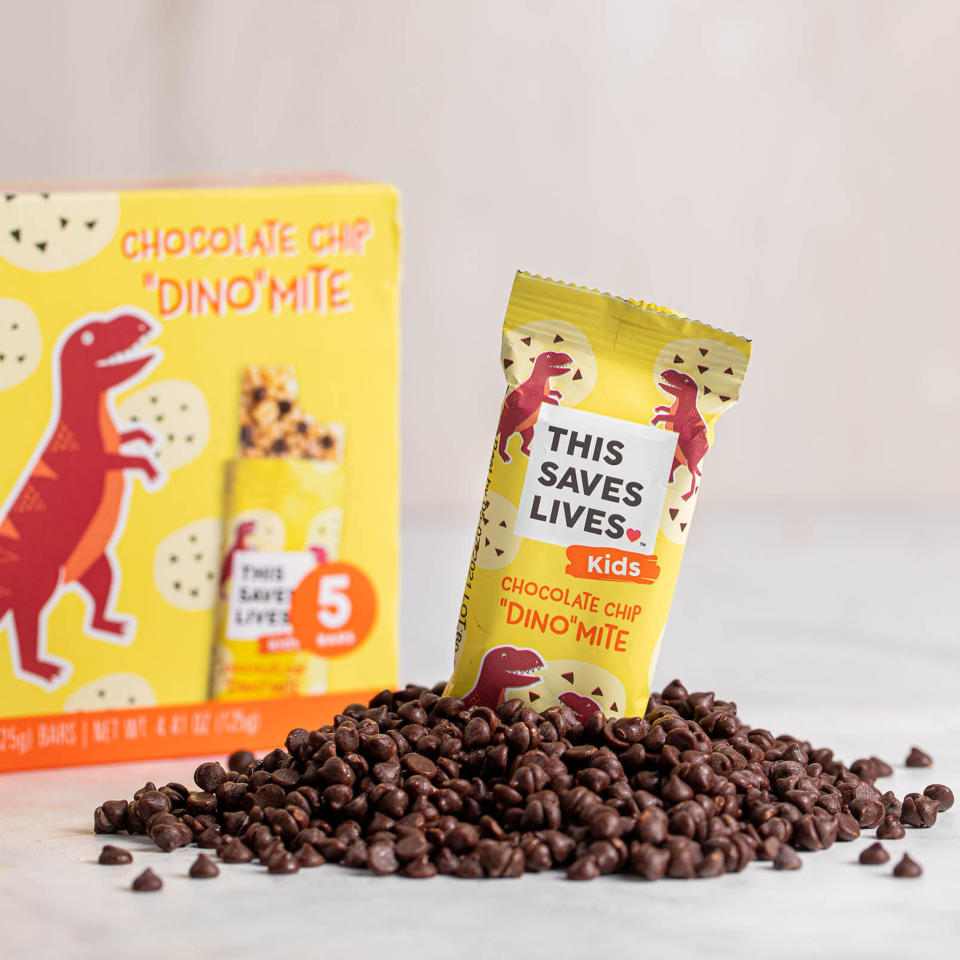
Founded by actress Kristen Bell, Ravi Patel, Ryan Devlin and Todd Grinnell, This Saves Lives has provided over 30 million packets of life-saving food to children suffering from malnutrition through the sales of their bars, oatmeal and GranolaPop. Every purchase of a This Saves Lives product helps to end child hunger internationally and here at home through programs such as Feeding America and No Kid Hungry. As a co-founder, Kristen has been instrumental in creating partnerships with national distributors and in shaping the product offerings, which are school safe and include fruits and veggies.
Moonshot Snacks
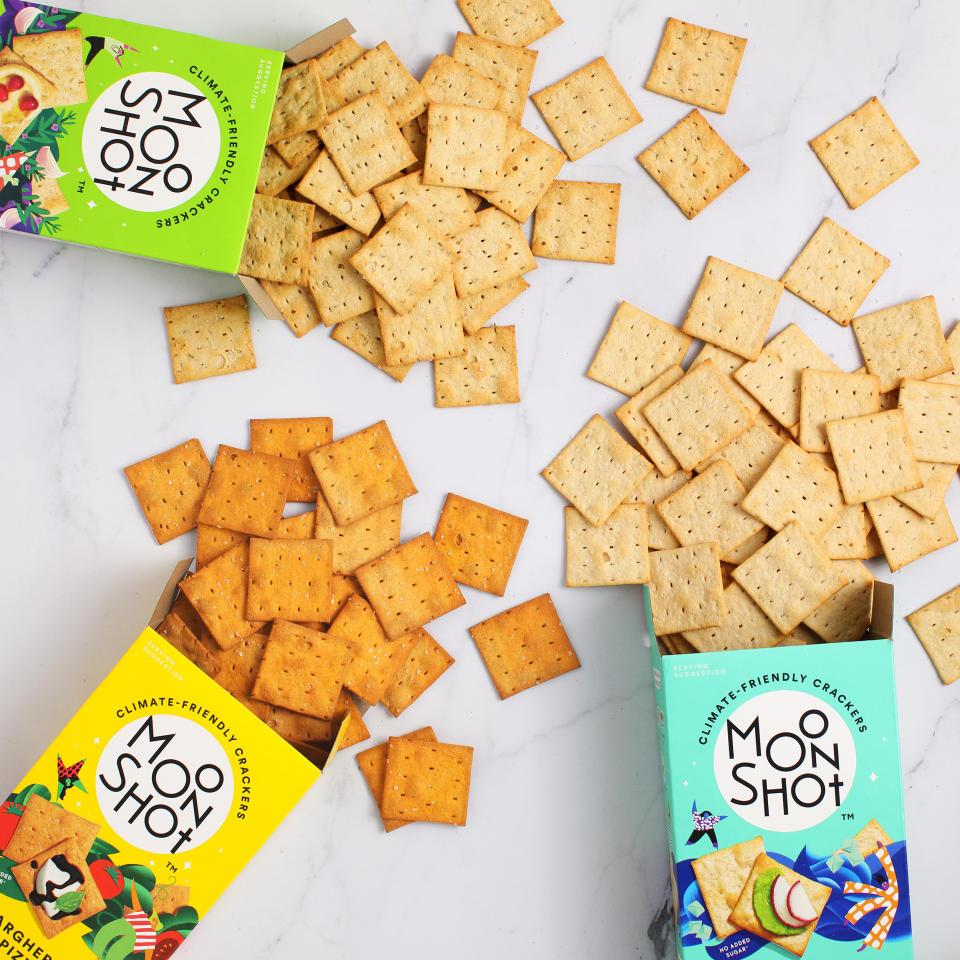
If you think something as simple as a cracker can’t change the planet, think again. In 2019, Julia Collins was pregnant and wondering how she could create a better world for her child who would soon be here. That quest was the start of Moonshot, which makes climate-friendly — and delicious — crackers, made with regeneratively grown ingredients sourced from family-owned farms. The black- and women-owned products are also plant-based and USDA certified organic.
Matriark Foods
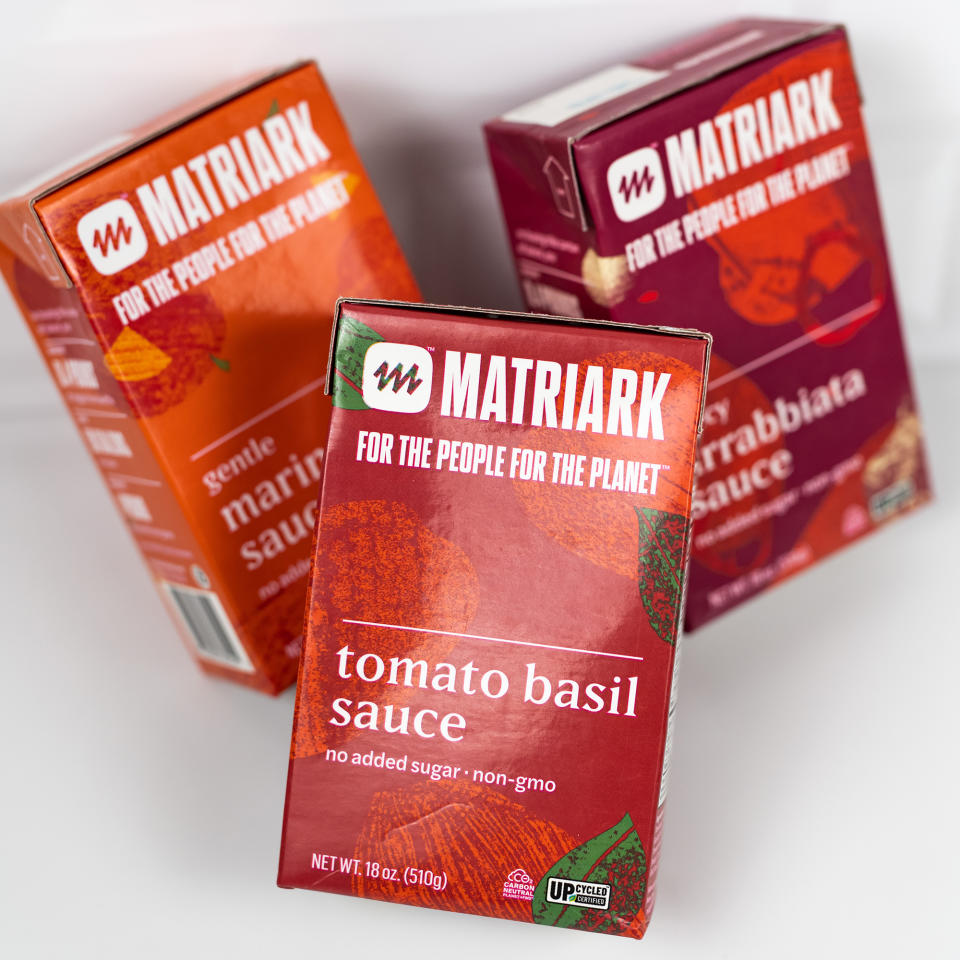
Food waste doesn’t only happen in our homes — it happens on farms too. All of those “imperfect” tomatoes, carrots, onions and more often get tossed onto a landfill, creating harmful greenhouse gases, or are tilled back into the land, which wastes all the water it took to grow them. Matriark Foods was created by co-founders Anna Hammond and Joyce Huang with a mission to divert surplus food headed to the landfill and create healthy products for food service, retail and emergency food supplies. They currently have three tomato sauces that you can buy at Whole Foods or online, and soups and stews will be launching later this year. We love that the packaging highlights how much your purchase of each product saves in terms of greenhouse gases, gallons of water and pounds of veggies saved from landfill.
WunderEggs
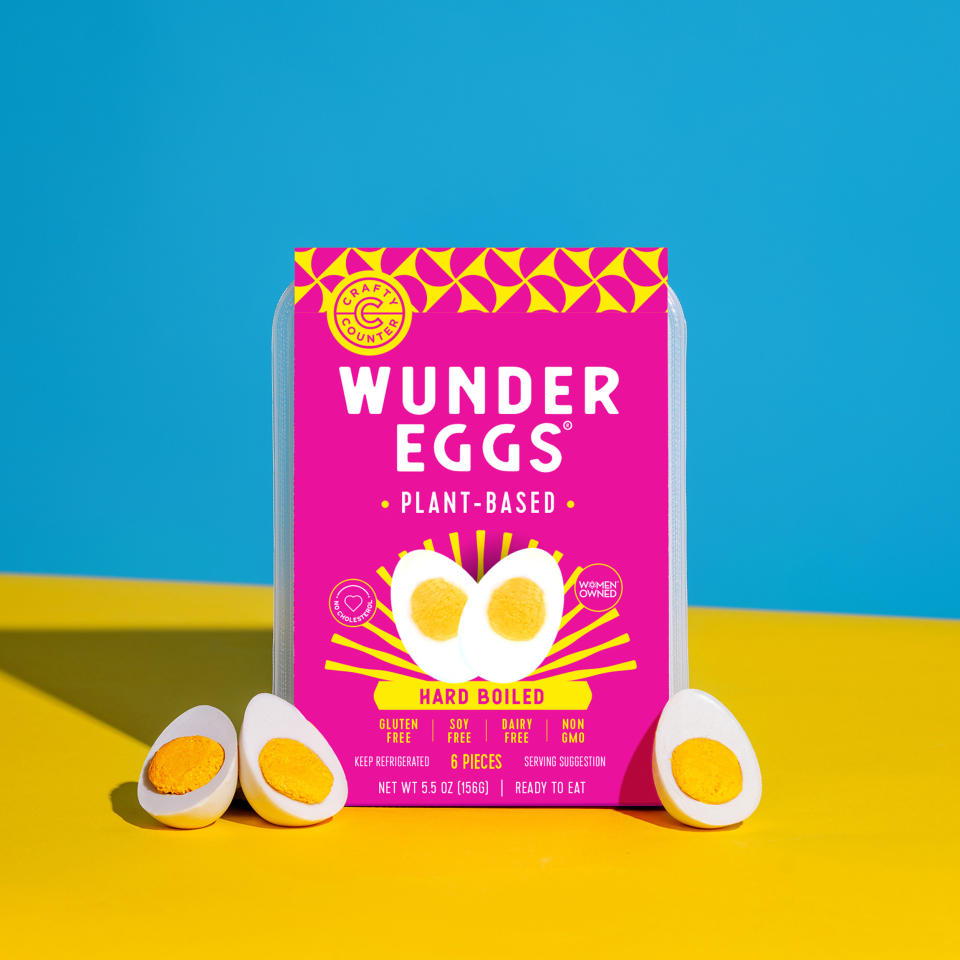
When some people adapt a vegan diet, the one food that they often miss is eggs. Hema Reddy, a former director of marketing for IBM, noticed this hole in the market and decided to create the very first plant-based hard-boiled egg, WunderEggs, under her brand Crafty Counter.
Made with almonds, cashews, coconut milk, konjac (a starchy root), turmeric and other plant ingredients, WunderEggs closely resembles a hard-cooked chicken egg. The brand plans to bring other plant-based egg options to grocery stores and restaurants in the future. Crafty Counter gives back one percent of proceeds to their local Austin, TX community and contributes to disaster relief.
Renewal Mill
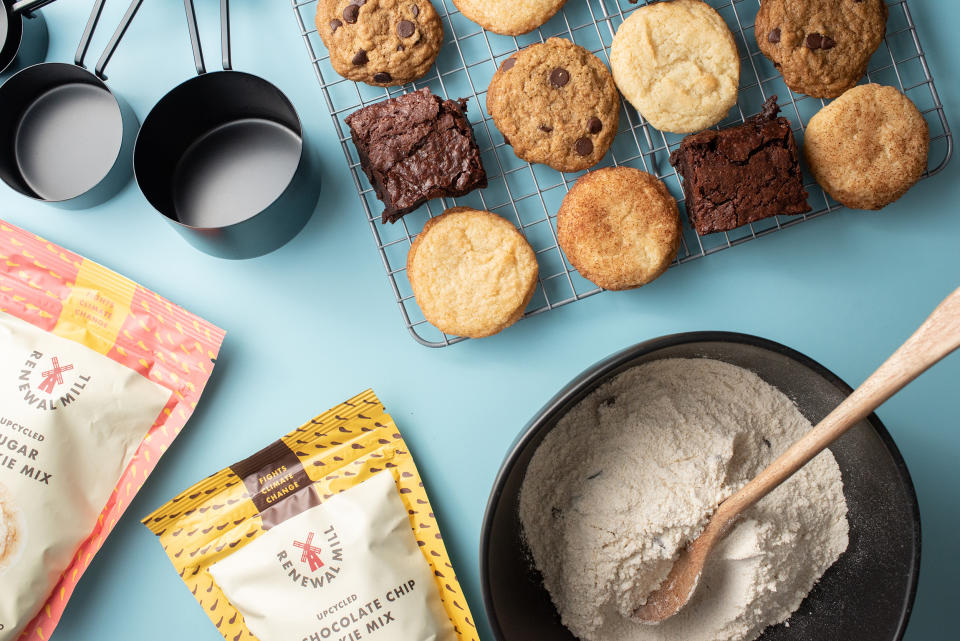
Have you ever wondered what happens to the used oats or the soybeans that are used to make the plant milk you pour over your cereal each morning? The pulp that’s left over normally gets thrown away, creating greenhouse gases that contribute to climate change. But Caroline Cotto and Claire Schlemme decided to take these nutrient-dense, but unwanted food manufacturing byproducts and turn them into something delicious when they launched Renewal Mill in 2016.
That upcycled okara flour (from soybeans) and oat flour are now being used in Renewal Mill’s cookie, brownie and muffin mixes, and soon-to-be cupcake mix. They also sell ready-to-eat cookies made with upcycled vegan butter from Miyoko’s Creamery and collaborate with other climate-friendly brands to help them create new products with their nutritious flours. They are working toward reaching a goal of upcycling two million pounds of food this year.
Sweet Nothings
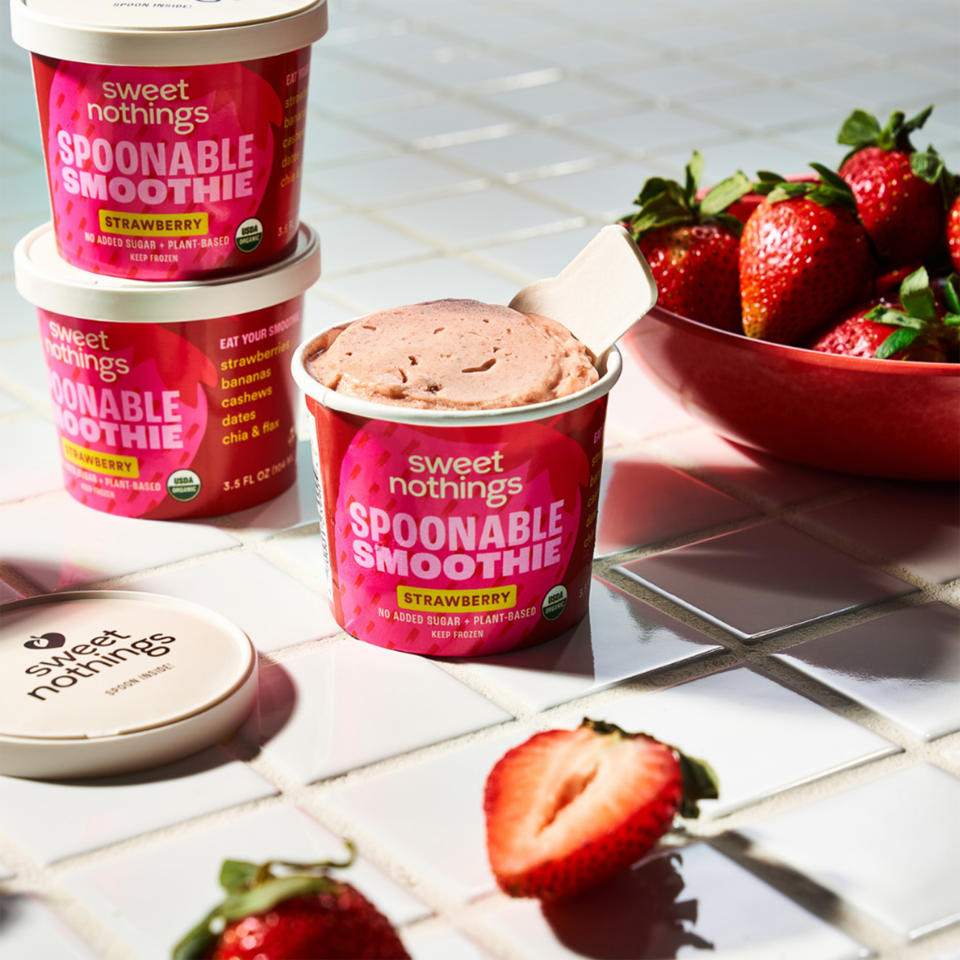
It’s the age-old struggle for moms — you want to feed your kids healthy and nutritious food, but it needs to be convenient and tasty too. Co-founder and mom Beth Porter came up with a nutrient-dense, superfood smoothie filled with fruits, nuts and seeds and figured out how to freeze it into a cup that had the consistency of ice cream. That became Sweet Nothings's first product, Spoonable Smoothies. Their Squeezable Smoothies for kids soon followed and their latest product, Nut Butter Bites, launched in 2022.
Paro
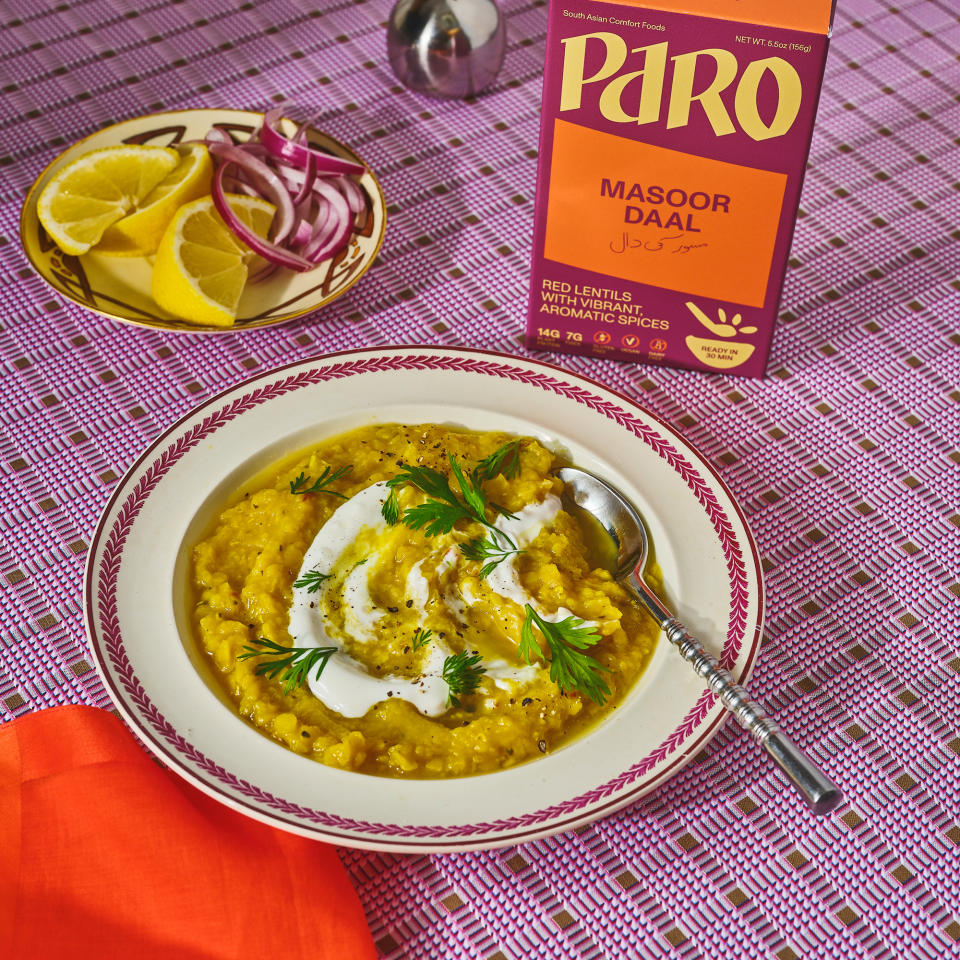
Comfort food means different things to different people, and as a first-generation American, the flavors of Pakistan bring comfort to Umaimah Sharwani, founder of Paro. Based on family recipes, Paro (Umaimah’s mom’s name) creates nutritious, convenient, gluten-free, plant-based mixes for kitchari (a combo of basmati rice, mung beans and spices), masoor daal and a spicy ghee-based topping called tarka. The brand is working on bringing more South Asian flavors to consumers soon.
Throughout the month of March, TODAY.com is celebrating women across generations who have made history and continue to move the conversation forward by breaking stigmas, sparking dialogue and inspiring the next generation.
This article was originally published on TODAY.com

